Suhana Safar with A. M. Turaz
Is “Tera Zikr” one of the top songs on your playlist? Does every line somehow resonating with you give you goosebumps? Do your feet start tapping automatically when the song “Udi” is played? If you love these songs, you should know about the wizard who wrote them. The pen evoked so many emotions in the movie ‘Padmavat’. Infusing gallons of emotions in each song, that they made it to every person’s music playlist, depicting a particular mood. We are delighted to have Mr. A.M. Turaz, an Indian Poet, Lyricist, and scriptwriter. Garnered with many awards, his feet still touch the ground and stand stable. His honesty and the grace with which he talks about his journey are worth the read.
How far is “love” necessary or important in a Shayari or a person’s life?
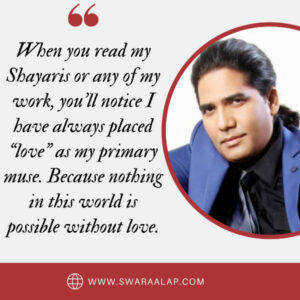 Speaking from personal experience, about love, I belong to a small village called Muzaffarnagar Sambhalkheda with a population of not more than 10,000. My journey, from there to the film industry, whether it was writing Shayaris, Filmi Geet, or scripts, has been challenging; knowing how difficult it is to prove yourself in the industry. But believe me, I wouldn’t have been able to do all this if I didn’t love what I was doing. People all around have seen my work and they have turned into fans but I have specifically not given anything to them in return. It is a bond that we have between us of unconditional love where there are no promises or you don’t have to prove yourself. When you read my Shayaris or any of my works, you’ll notice that I have always placed “love” as my primary muse because nothing in this world is possible without love. Your work or the success you bring in is as good as nothing if you don’t do it out of love. Love has a very important spot in movies. You won’t be able to see only action films or comedy films; there comes a limit. You need an element of love or romance to bind it all together. It has a strong connection with us, whether we are going through our daily lives or if we’re singing, writing or playing an instrument. Without love, you cannot do justice to your work or life. There is no greater emotion than love.
Speaking from personal experience, about love, I belong to a small village called Muzaffarnagar Sambhalkheda with a population of not more than 10,000. My journey, from there to the film industry, whether it was writing Shayaris, Filmi Geet, or scripts, has been challenging; knowing how difficult it is to prove yourself in the industry. But believe me, I wouldn’t have been able to do all this if I didn’t love what I was doing. People all around have seen my work and they have turned into fans but I have specifically not given anything to them in return. It is a bond that we have between us of unconditional love where there are no promises or you don’t have to prove yourself. When you read my Shayaris or any of my works, you’ll notice that I have always placed “love” as my primary muse because nothing in this world is possible without love. Your work or the success you bring in is as good as nothing if you don’t do it out of love. Love has a very important spot in movies. You won’t be able to see only action films or comedy films; there comes a limit. You need an element of love or romance to bind it all together. It has a strong connection with us, whether we are going through our daily lives or if we’re singing, writing or playing an instrument. Without love, you cannot do justice to your work or life. There is no greater emotion than love.
How do you connect with your audience when you are writing a song and reciting a Shayari? How do you treat these different audiences?
Honestly, after doing a lot of research, I’ve concluded that it is love. And speaking about catching the nerve of the audience, if you see, our heartbeats have a rhythm; so rhythm and love go hand in hand. I go with that philosophy. I vouch and believe in love and that’s why you’ll see that it reflects in my shayaris and songs that I write or present on stage. What happens is, I write a song for my audience with sheer passion and dedication. There are a few stages to cross before it is out for the audience. First, it gets released, then published, and then if it gets popular, you come to know that they have received your message. The audience feedback comes via other sources. But during stage shows, you can instantly catch the vibe of your audience. Whether they’ve liked it or not. This is the case with every poet because we strike a connection. The response we receive is truly authentic and real. We catch their pulse; our work touches their heart. I always try to make my audience happy and give them the love they deserve through my shayaris or songs.
From the time you opened your eyes to when you came to Mumbai for the first time, which song or film impacted your life massively?
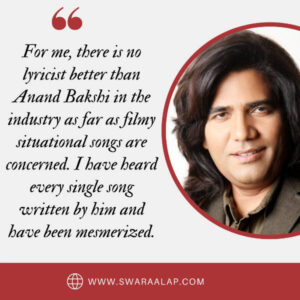 I have a simple family background. My father was a farmer. I was the eldest in the family and we didn’t have great exposure. We used to sneak out and watch movies. We had a simple living. But I was always interested in listening and reading shayaris. My father completed his education in Urdu so, there was an environment of reading and listening to literature in Urdu. Through him, we could listen to old songs and later I learned that these songs were written by Sahir Sahab, Shakeel Sahab, or Anand Bakshi Sahab. For me, there is no lyricist better than Anand Bakshi in the industry as far as filmy situational songs are concerned. From the time I started listening to Hindi songs, there is only one name that I can vividly remember. It is Anand Bakshi. I have heard every single song written by him and have been mesmerized. But the surprising factor was we never knew who wrote these songs. Writers’ community was always way behind the curtains. People had a perception that the actor has written it if he’s acted in it. Access to details or more information was not always possible but thanks to technology now you get the details at the tip of your fingers. Writers from Kaifi Azmi to Anand Bakshi Sahab and their contemporaries have definitely had an impact on my life.
I have a simple family background. My father was a farmer. I was the eldest in the family and we didn’t have great exposure. We used to sneak out and watch movies. We had a simple living. But I was always interested in listening and reading shayaris. My father completed his education in Urdu so, there was an environment of reading and listening to literature in Urdu. Through him, we could listen to old songs and later I learned that these songs were written by Sahir Sahab, Shakeel Sahab, or Anand Bakshi Sahab. For me, there is no lyricist better than Anand Bakshi in the industry as far as filmy situational songs are concerned. From the time I started listening to Hindi songs, there is only one name that I can vividly remember. It is Anand Bakshi. I have heard every single song written by him and have been mesmerized. But the surprising factor was we never knew who wrote these songs. Writers’ community was always way behind the curtains. People had a perception that the actor has written it if he’s acted in it. Access to details or more information was not always possible but thanks to technology now you get the details at the tip of your fingers. Writers from Kaifi Azmi to Anand Bakshi Sahab and their contemporaries have definitely had an impact on my life.
When you write a song, do you share the treatment of words, rhythm, or thought with the composers?
Most of the composers I have worked with have made me write the songs depending upon the tune, except for Sanjay Leela Bhansali. And the stuff I wrote was later composed with Sanjay Ji. In general, of the songs I write, I only share my writing material with them. Creating a composition that takes place later in the process is always miles ahead of what I think or imagine. So, I feel that a writer’s job finishes after writing the material when he/she knows that there are professionals who know their job. If a writer feels strongly that his/her inputs will make a difference, they may go ahead. In a normal scenario, the job of a writer is to only write. Every writer writes with a rhythm or humming a tune in their mind. Because in its absence, he/she cannot write at all; which is quite normal. I feel extremely happy that beautiful compositions are made with a song that I’ve written and the fact that the audience appreciates them.
The subjects you were taught and your education in Muzaffarnagar, do they help you as a writer/lyricist/artist?
Yes, Education is very important. Your professional life can be different from what’s studied in school or college. But education creates a system inside you or rather creates a discipline so to speak. It supports you in the field you choose more than you expect. It really does.
Can you analyse this line for us “Pyas jo meri Bhuj Gayi hoti, Zindagi Phir na zindagi hoti…”?
The line clearly states, your aim is going to complete your life. The thirst we have as humans will take us to the ocean, to infinite possibilities. “Zindagi na kamiyon ke naam ho isse pehele koi accha kaam ho… isiliye gumnaan rakha hai tujhe, kyu mere naam se badnaam ho…” The only peculiar difference between the life of an artist and a layman is that when an artist passes away, they continue to live on through their art. As artists, it is our responsibility to create something that our coming generations can be proud of.
Veteran writers like Shailendra Sahab, Shakeel Badayani, among others, have set a standard for Filmi Geet. The current generation of artists has the responsibility to extend the standard or maintain it. What are your views on it?
Yes, every generation of creators has a responsibility. Honestly, the culture, history, and literature were prominent in old films compared to now. We have been influenced by western culture and it penetrates everything we consume as an audience. Things change because we move forward. As they say, change is the only constant. Time introduces discoveries and leaves the rest into the past. We are all trying to bring out the best and by God’s grace, the audience will get good music to listen to. This cycle of creation is going to continue. Today, we are producing and creating music, in the coming time, the next generation will take over and we will be taking a back seat. It is a shared responsibility to serve our audience and strengthen our system.


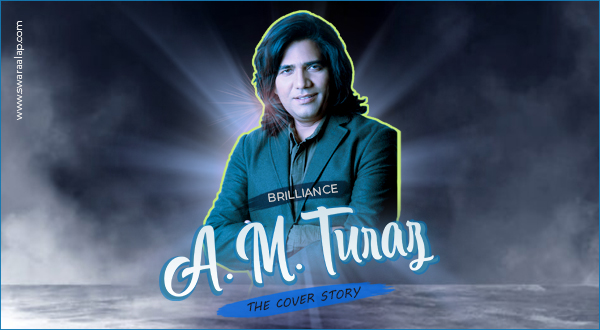
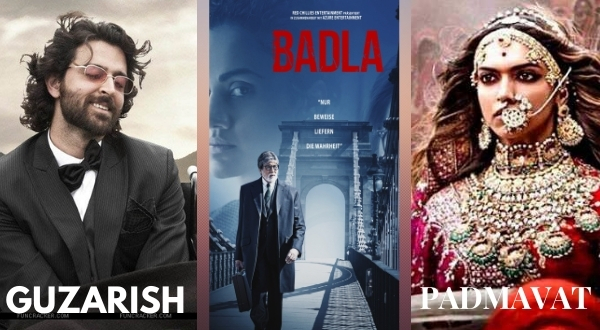
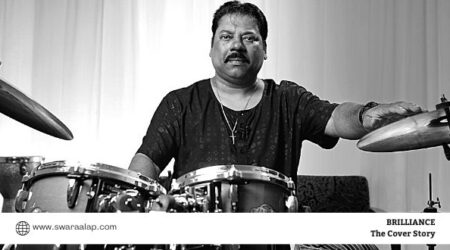

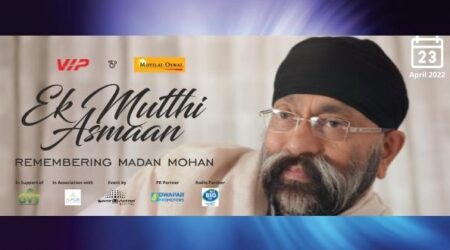

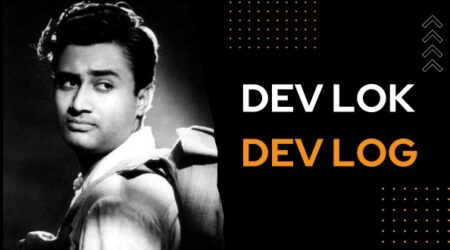
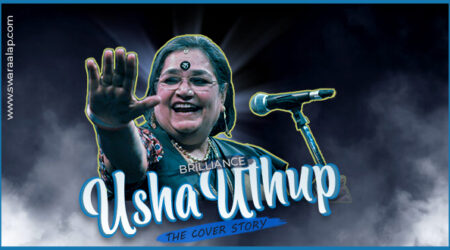
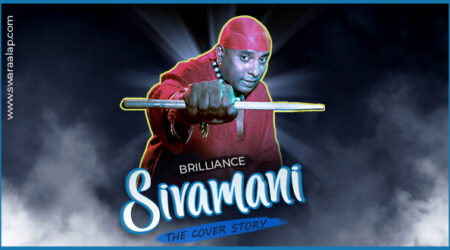
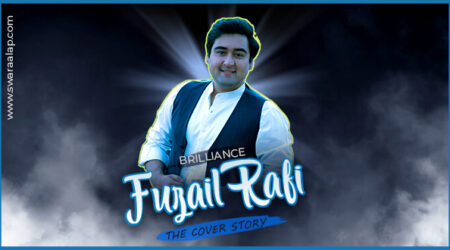
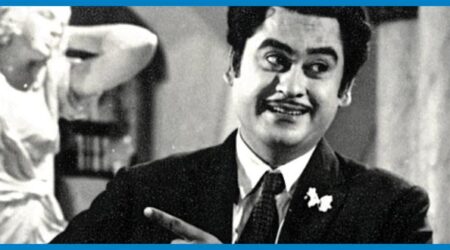


Comments (4)
Great initiative Dinesh ji
Love and best
Alpesh Moharir
?
Waah, music lovers should read such articles
तुराज़ जी ने इतनी अल्पायु में जो शोहरत हासिल की है और जो गीत पेश किए हैं वो वाकई में काबिलेतारीफ है । उनके बारे में अधिक जानकारी प्रस्तुत करने के लिए दिनेश जी का आभार
I am Die hard fan of Turaz ji’s work.superb article.